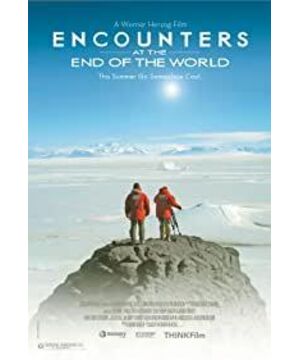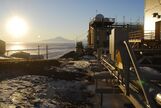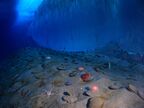Flying is unpleasant because of the cramped world of the cabin, with all the weird and strict disciplines that resemble a prison.
You can't run, you can't jump, you can't speak loudly, everyone has to be like a kindergarten baby, with a seat belt and a seat.
The stewardess in uniform, pushing the cart, bending down the waist of uniform size, and using uniform gestures, began to feed, or feed.
The passengers must be fed or fed by the stewardess and eat at the same time. The only way you can express personal free will is to choose between rice and pasta, and between black tea, coffee, and orange juice.
In a word, order! Apart from prisons, few other confined spaces are more orderly than the cabin of an airplane.
Civil aviation is still like this, isn't it more majestic for military aircraft? Unexpectedly, at the beginning of the film "Meet at the End of the World", the camera used a 360-degree camera to slowly sweep the cabin of a military aircraft: people lying down one after another, in various poses, stuffed in every corner, without blankets, together Clothes and lying down, sleep soundly.
Looking at the chaotic scene in surprise, I blurted out: "The meat is exhausted, the cups and plates are in a mess. The phase and the pillow are in the boat, and I don't know if the east is white."
This ancient text comes from the end of Su Dongpo's "Qian Chibi Fu", which means: friends are very happy, after drinking and eating, the cups and plates are piled up in a mess. Taking advantage of the wine, everyone cuddled with each other and used each other as pillows. They lay down and fell asleep on the boat. I don’t know when, the white dawn has quietly revealed in the sky.
It is understandable for literati to be reckless after drinking. However, on a military plane, just because the destination is the Antarctic, can passengers have a reason to throw away the order, return to the basics, and treat the aircraft cabin as a kindergarten?
In the opening scene of the documentary "Encounters at the End of the World", it was as if he bit a pepper while eating vanilla ice cream. After a moment of stunned, some inexplicable meanings appeared between the lips and teeth. It spreads out, making you suppress your surprise and start thinking about it.
Immediately afterwards, the plane landed, and the camera turned to the road leading to the Antarctic research station, God! Is this the site of a rural demolition site? There is mud everywhere, simple to shabby flat-panel houses, all over the place, dumbfounded, and pestles on both sides of the road.
The road was broken as if it were a dirt road, not a cement road and asphalt road that is common in cities. The passing vehicles struggled hard, climbed a big dirt slope with a wheeze, and fell into a big mud pit with a bang. Looking worried.
The driver tried his best to deal with the steering wheel and clutch, his eyes focused and fierce. They were all scribbled, with disheveled hair and unshaven beards.
It is hard to imagine that such rough gentlemen and migrant workers are scientists at the top of various academic fields, or bankers worth millions.
It's been a horrible journey for passengers. After finally bumping to the camp, a bigger test is coming: Antarctic survival training!
Conditions are limited, so we can only make it simple, plastic buckets and long ropes are all teaching props.
After the teacher explained, a team that was so weird that the onlookers laughed, but they were unaware of it, was established: a plastic bucket was put on the student's head, numbered, lined up in a column, pulling a A long rope.
The team set off at an extremely slow speed, heading towards the designated target, advancing little by little like a blind man feeling an elephant, and soon deviated from the correct direction, overwhelmed, and huddled together.
Because of the plastic buckets on their heads, it is difficult to communicate with each other, and no one knows what to do. The first action failed.
It turned out that in the blizzard environment, the visibility was extremely low, similar to the feeling of a blind man. They couldn't hear each other shouting, like a deaf person. Hooded plastic bucket, the best simulation of the Antarctic environment.
The teacher was nearby, watching quietly, holding both arms, silently, with a smirk on his face.
Humans are the most inexplicable species in the world. It is the instinct of all creatures to seek advantages and avoid disadvantages. Tibetan antelopes and African wildebeest migrate after water and grass. The stems and leaves of plants always point in the direction of the sun, while some human beings prefer to fight against biological instincts and give up. In order to have a good material life, he went to the South Pole to suffer.
Therefore, the focus of this documentary is not to popularize scientific knowledge in the traditional sense, or to show the Antarctic scenery, but "people". Everyone in Antarctica.
"Why did you come to Antarctica?" This is the most common sentence in the film.
Werner Herzog uses this simple question to make trouble with everyone he meets in Antarctica. This tall man with a big horse maintains a strong curiosity about the world, like a naive child.
"Why? Why?" Following the other party's answer, he kept on keeping on keeping on with the changes, and asked desperately to the end, just like the little pig with pink spots in the work "The World of Bugua" by Taiwan cartoonist Jimi.
The film was nominated for the 81st Academy Award for Best Documentary in 2009, probably by the judges, as a tribute to the precious curiosity of human beings.
Werner Herzog, the writer and director of the documentary, didn't like it enough, so he went to the field himself, serving as a live interview reporter and film narrator. It's a pity that there is no avatar technique, otherwise, he would even be a photographer.
Under his perseverance, a welder showed his hands to the camera and said that he had royal blood.
A computer expert who loves to travel, demonstrating on the spot how to hide in his suitcase.
A linguist-turned-gardener, wearing an apron, worked hard in a greenhouse growing greens and flowers.
A scientist who has been persecuted and experienced a terrible life of desperation, who has reached the Antarctic, the holy land of peace, still carries a backpack with all the equipment needed to survive in the wild, so that he can escape at any time.
These people come from a variety of backgrounds. What influences them and makes them feel that they must come to Antarctica?
The driver's answer was typical, "Because I decided to do something more meaningful," so he quit his good job as a banker and came to Antarctica to drive for scientists.
I hope that my life is more meaningful, not so rigid and boring, and not static from birth to death. I hope that in this short life, there will be more unique life experience.
Maybe this is the wish or dream of many people? However, some people bravely realized it, and more people just think about it.
At the end of the film, the famous penguin appears. It first followed its companions, walking towards the blue sea on the white snow. Suddenly, it stopped, left the main force, turned its head, and hurried towards the mountain.
The zoologist who specializes in penguins happens to be nearby, and he folds his arms, frowns, and looks down at the little fellow.
Regardless of body size, height, or walking posture, it is very similar to the little guy of a three-year-old human child, wearing a long black coat, with a white round belly, swaying, running towards the valley of death.
Penguins are social animals and cannot survive without their companions in the harsh natural conditions of Antarctica.
He didn't reach out to stop it. Catching it and putting it back into place is like picking up a child who is about to fall off the steps, but it's a small effort.
However, he just watched, didn't speak, hugged his arms tightly, and always adhered to the sacred bystander.
Because according to the Antarctic Law, human beings cannot interfere or change without authorization, the free will of animals.
That's the penguin's own choice.
Maybe it went crazy. Maybe it couldn't hold back its intense curiosity. Maybe it was tired of the normal life pattern, trying to occasionally go wild in the short goose birth, and just heard the mysterious call of the valley.
Just like a thousand years ago, Su Dongpo, who was drunk on a boat and did not know that the East was white, was like those who broke away from the normal track of life and came to the Antarctic, and Herzo, who had a childlike curiosity about them and the world. grid.
At the end of the world, meet your dreams. Is the penguin that turned around and headed for the inland, the epitome of these professional dreamers? It is shocking, pathetic and inexplicable, with mixed flavors and awe.
PS: Another great enjoyment of watching this film is the incredible and rare polar scenery. Including the calls of the seals. The sound of nature cannot be described in words. A group of people lay quietly on the ice and listened for a long time.
View more about Encounters at the End of the World reviews







